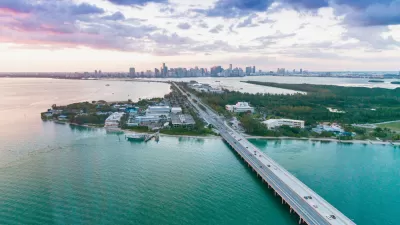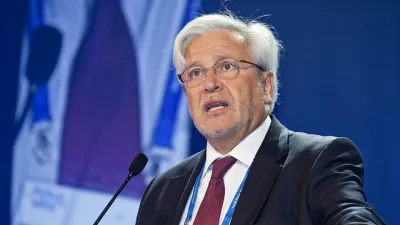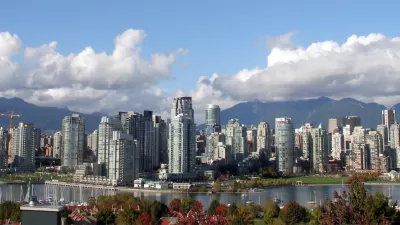At the UN’s Habitat III conference taking place this fall in Quito, Ecuador, the role of cities in addressing the movement of migrants will be a primary topic of discussion.

In October of last year, the International Organization for Migration (IOM) held a conference in Geneva that produced a framework for addressing the needs of migrants around the globe. The framework came out of discussions among mostly local authorities on how to address the arrival of migrants into their communities, either due to economic hardship or to escape conflict. Paula Beana of IOM writes in Citiscope that the Habitat III conference this fall is a timely opportunity to further discuss the role of migrants in driving the growth of cities and as potential "agents of development." The framework included six elements:
1. local authorities must lead policy and planning on migration and urbanization;
2. if the benefits of migration to cities are to be realized and potential negative effects mitigated, migration;
3. the negative impacts of urbanization on rural areas should not be overlooked as an area of both challenge and opportunity;
4. there is currently a policy vacuum on migration in urbanization policies;
5. local leaders can change the national perception of migration;
6. new approaches to urban governance and migration policies, including meaningful dialogue at all levels of government, are called for.
The article explores each topic more fully, and provides policy objectives for local level action to address the needs of cities and migrants.
FULL STORY: Habitat III can help migration drive city development

Planetizen Federal Action Tracker
A weekly monitor of how Trump’s orders and actions are impacting planners and planning in America.

Map: Where Senate Republicans Want to Sell Your Public Lands
For public land advocates, the Senate Republicans’ proposal to sell millions of acres of public land in the West is “the biggest fight of their careers.”

Restaurant Patios Were a Pandemic Win — Why Were They so Hard to Keep?
Social distancing requirements and changes in travel patterns prompted cities to pilot new uses for street and sidewalk space. Then it got complicated.

Platform Pilsner: Vancouver Transit Agency Releases... a Beer?
TransLink will receive a portion of every sale of the four-pack.

Toronto Weighs Cheaper Transit, Parking Hikes for Major Events
Special event rates would take effect during large festivals, sports games and concerts to ‘discourage driving, manage congestion and free up space for transit.”

Berlin to Consider Car-Free Zone Larger Than Manhattan
The area bound by the 22-mile Ringbahn would still allow 12 uses of a private automobile per year per person, and several other exemptions.
Urban Design for Planners 1: Software Tools
This six-course series explores essential urban design concepts using open source software and equips planners with the tools they need to participate fully in the urban design process.
Planning for Universal Design
Learn the tools for implementing Universal Design in planning regulations.
Heyer Gruel & Associates PA
JM Goldson LLC
Custer County Colorado
City of Camden Redevelopment Agency
City of Astoria
Transportation Research & Education Center (TREC) at Portland State University
Camden Redevelopment Agency
City of Claremont
Municipality of Princeton (NJ)





























